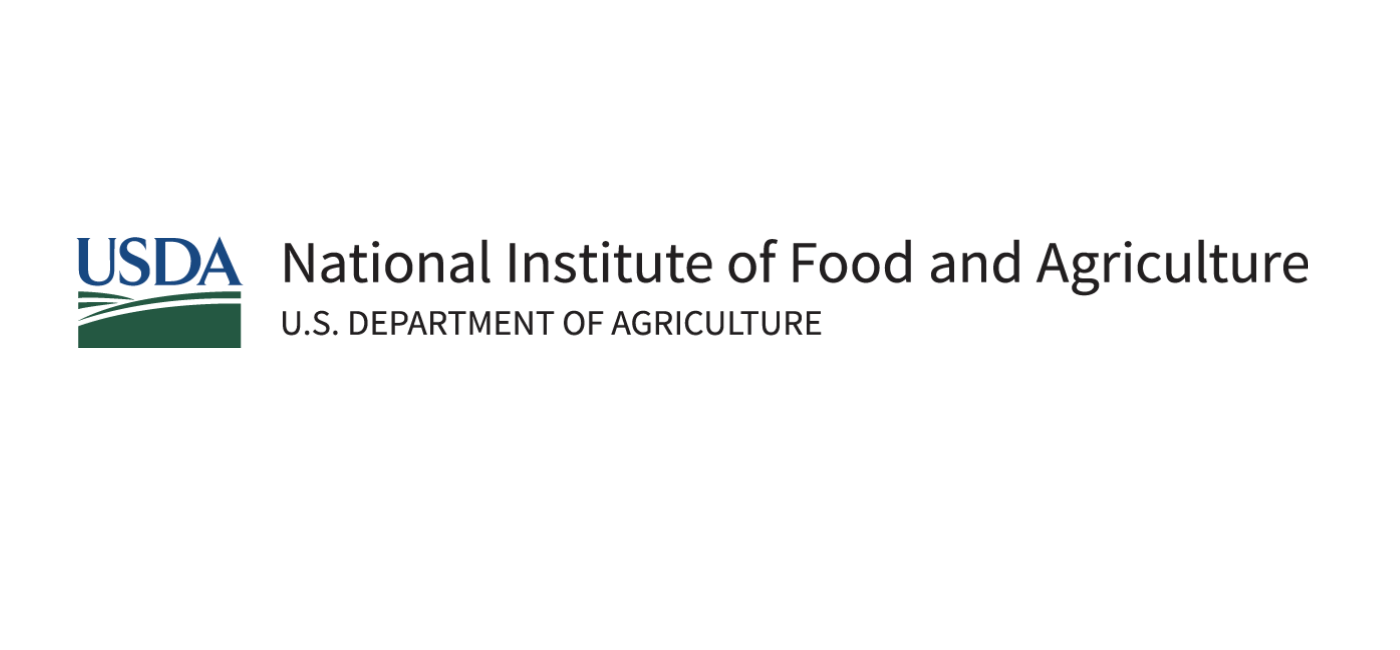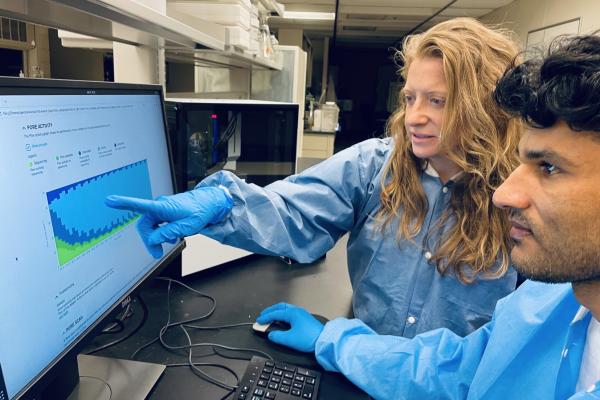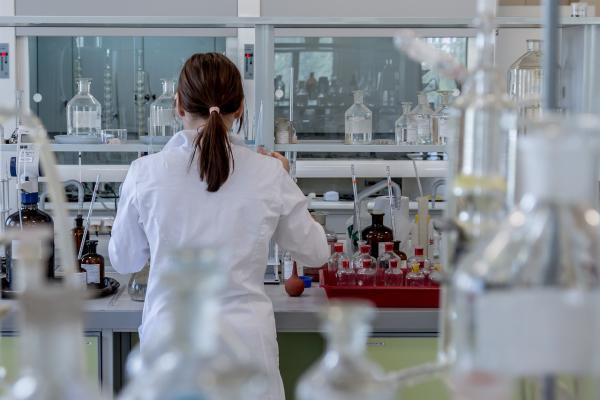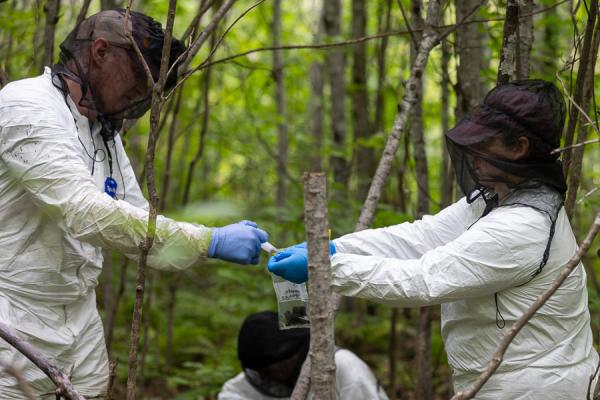USDA NIFA awards the CVM more than $2.7 million for research
January 19, 2021

With the new support, CVM researchers will help animals and producers across the food animal agriculture industry
ST. PAUL, MINN. --- The United States Department of Agriculture National Institute of Food and Agriculture (USDA NIFA) recently funded more than $2.7 million worth of research at the University of Minnesota College of Veterinary Medicine (CVM). The projects that benefit from this funding will help the food animal agriculture industry maximize production and advance strategies for keeping animals healthy. This recent investment in the CVM’s research represents another milestone in the decades-old relationship the College has with USDA NIFA, which has established a history for furthering food animal agriculture across species and contexts.
College leadership looks forward to how this new funding, when paired with CVM investigators’ expertise, will further the science that powers animal welfare and food security across the country. “These projects represent the breadth and depth of expertise that our veterinary researchers possess,” says Molly McCue, DVM, MS, PhD, DACVIM, associate dean for research at the CVM. “It also reflects how much they value serving and working with industry partners.”
The list of projects underway include:
Eliminating airborne viruses from swine barns
Montserrat Torremorell, DVM, PhD, professor in the Department of Veterinary Population Medicine, was awarded $1 million to continue developing technologies to safely capture airborne viruses in swine barns. Torremorell will work in collaboration with Christopher Hogan, PhD, professor in the College of Science and Engineering, to focus on advancing these systems to better protect the national swine herd from porcine reproductive and respiratory syndrome virus and influenza A virus, two of the most impactful viruses on U.S. pigs, and better prepare against foreign animal diseases. The grant will also allow Torremorell and Hogan to develop educational and outreach efforts around maximizing and using this technology, which will be geared toward the producers, policymakers, and other stakeholders who will be essential in putting these systems into execution. This project will help enhance food security and safety measures in the swine industry by diminishing the impact these hard-hitting viruses are able to have. Funding will begin February 1, 2021, and will last through January 31, 2024.
Helping swine producers restrain antibiotic resistance
Noelle Noyes, DVM, PhD, assistant professor in the Department of Veterinary Population Medicine, received just under $1 million to help swine producers manage swine after antibiotic exposures in order to decrease antimicrobial resistance (AMR) in the U.S. swine herd. Noyes will collaborate with Randall Singer, DVM, PhD, professor in the Department of Veterinary and Biomedical Sciences, and Maria Pieters, DVM, PhD, assistant professor in the Department of Veterinary Population Medicine, to investigate how pigs’ diet and interactions with other pigs could be shaped to reduce AMR on swine farms. They will evaluate how diet changes and commingling strategies could be used to prevent AMR persistence after pigs receive antibiotics for disease control. The goal is to identify cost-effective and commercially feasible on-farm interventions for reducing AMR. They will also pinpoint microbial processes that drive AMR in piglets that have been exposed to antibiotics, and develop an open-source big data platform that the livestock industry can use to identify effective AMR mitigation strategies. Funding began November 15, 2020, and lasts through November 14, 2023.
Controlling Salmonella outbreaks on poultry farms
Tim Johnson, PhD, professor in the Department of Veterinary and Biomedical Sciences and director of research and development at the Mid-Central Research and Outreach Center in Willmar, Minn., was awarded nearly $480,000 to enable poultry producers to anticipate evolving types of Salmonella found in poultry operations. Johnson will collaborate with Randall Singer, DVM, PhD, professor in the Department of Veterinary and Biomedical Sciences, and Anup Johny, PhD, associate professor in the College of Food, Agricultural and Natural Resource Sciences, to analyze whole genomes from more than 25,000 strains of Salmonella from poultry and humans. The researchers will use this information to build a comprehensive database that will allow anyone to rapidly analyze the DNA from Salmonella on poultry farms, and predict if changes have occurred in these bacteria that now make them a greater risk for persistence in the birds or an enhanced risk for causing human disease. This project will empower poultry producers to respond proactively to emerging Salmonella, allowing them to better stay on top of the bacteria and control the spread of disease in both poultry and humans. Funding began January 1, 2021, and lasts through December 31, 2023.
Training food production animal pathologists
Jerry Torrison, DVM, PhD, DACVPM, director of the Veterinary Diagnostic Lab and professor in the Department of Veterinary Population Medicine, received approximately $240,000 to lead a three-year anatomic pathology residency training program focused on production animal diagnostics. A cornerstone to clinical disease management in food animals, veterinary pathology works in disease surveillance, prevention, diagnosis, and treatment. Preparing an adequate number of well-trained large animal pathologists for work in rural sectors and diagnostic labs is critical to the nation’s food supply. Delivered in partnership with South Dakota State University (SDSU), the program merges expertise in the diagnostic labs at both universities to expose trainees to diagnostic methods specific to production animals as it prepares them for pathology board certification. Over the course of the three-year program, residents will spend a total of 12 months on-site at the SDSU laboratory in Brookings. Torrison will collaborate closely with co-principal investigator Angela Pillatzki, DVM, MS, DACVP, assistant professor at SDSU. The funding began September 15, 2020, and ends September 14, 2023.
###
CONTACTS
Montserrat Torremorell, [email protected]
Noelle Noyes, [email protected]
Tim Johnson, [email protected]
Jerry Torrison, [email protected]


